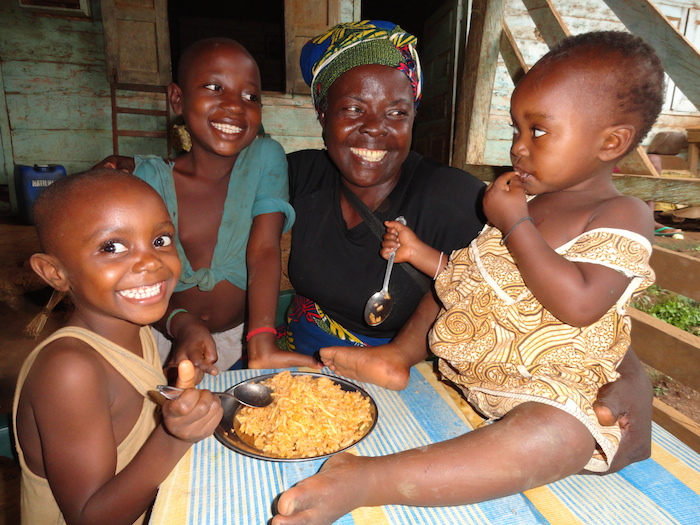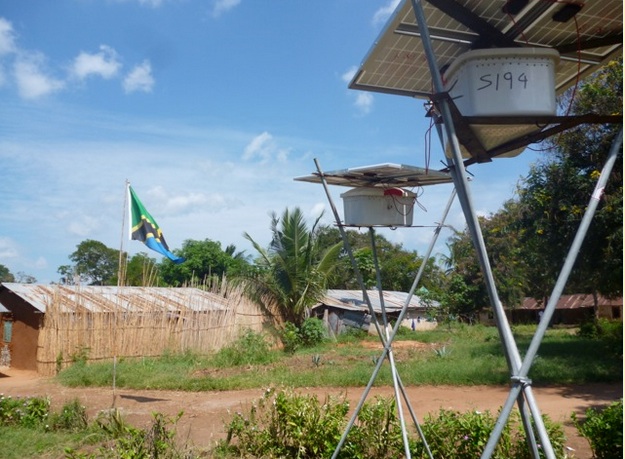
By Friday Phiri
A high level panel of African agricultural experts has linked the continent’s agricultural transformation to the outcome of the climate negotiation process.
Speaking during a panel discussion organised by the African development Bank at the just concluded Climate change conference in Paris, France, Akinwumi Adesina, President of the African Development Bank (AfDB) said the future of Africa depends on agriculture.
However, Dr Adesina thinks Africa’s agricultural transformative agenda would be impossible if the continent does not get the resources to adapt to climate change.
“The danger that Africa will not be able to feed itself is a real one. And if we don’t have resources to adapt to climate change, Africa will not be able to unlock potential in agriculture”, said the AfDB president, in his submission to a debate on climate change variability and its implications on Africa’s agricultural transformation agenda.
The panel discussion which included the African Union Commissioner for Rural economy and Agriculture, Rhoda Pearce Tumutsime, World Bank Vice President for Africa, Makhtar Diop among other renowned Agricultural experts, highlighted the strong link that exists between climate change adaptation and the continent’s ambitious goal of transforming and making agriculture the number one economic spinner.
The importance and need to transform Africa’s agriculture has been highlighted by several development partners owing to Africa’s natural resource endowment with the continent boasting of 65% of the remaining World’s total arable land.
However, even with such potential, Africa is the net importer of what it can produce, and in the process is believed to spend around $35 billion importing food when it should be exporting.
A further irony is that while this is the case, agriculture provides the source of livelihood for 70 percent of the continent’s population, and it is for this reason that African leaders have over the years been brainstorming on ways of how to transform the sector.
And the continent’s blueprint for development—Agenda 2063 targets to create 122 million jobs by 2063. But this ambitious goal hangs in the balance as climate change is already threatening to reverse even the little gains made.
In her submission to the debate, Rhoda Pearce Tumutsime, the African Union Commissioner for Rural Economy and Agriculture said unless Africa gets a good deal at COP 21, the continent will not be able to transform agriculture.
“Unless we get a good deal here, that will help with the right technology, we will not be able to modernize and transform agriculture”, she said.
Therefore, all eyes of Africa are focused on the COP 21 climate negotiations with a particular focus on adaptation and its financing mechanism, a critical component that Africa has been singing over the years.
This is so considering the continent’s glaring realities of climate change effects ranging from droughts and floods in Southern Africa, shrinking rivers with the classic example of Lake Chad and Niger basin, and water stress situations in the Sahel region of the continent.
Africa’s agricultural vulnerability to climate change is mainly premised on the continent’s dependency on rainfall for production.
While the World Bank Vice President for Africa, Makhtar Diop agrees with the reasoning that climate change offers a fundamental uncertainty, he believes all hope is not lost as there still exists a huge irrigation potential in Africa.
“Climate change is the fundamental uncertainty but if we diversify Africa’s economy, and put in right technology and policies, we can sustain the continent’s economic growth that has been doing well for the past ten years”, he said.
Taking into account the submissions of panelists, they seemed to agree that while opportunities may be abound for Africa’s agricultural transformation, climate change remains a dark cloud hovering around the continent’s sustainable development future leading to the conclusion that “Unless Africa adapts to climate change, it will not unlock agricultural potential.”












